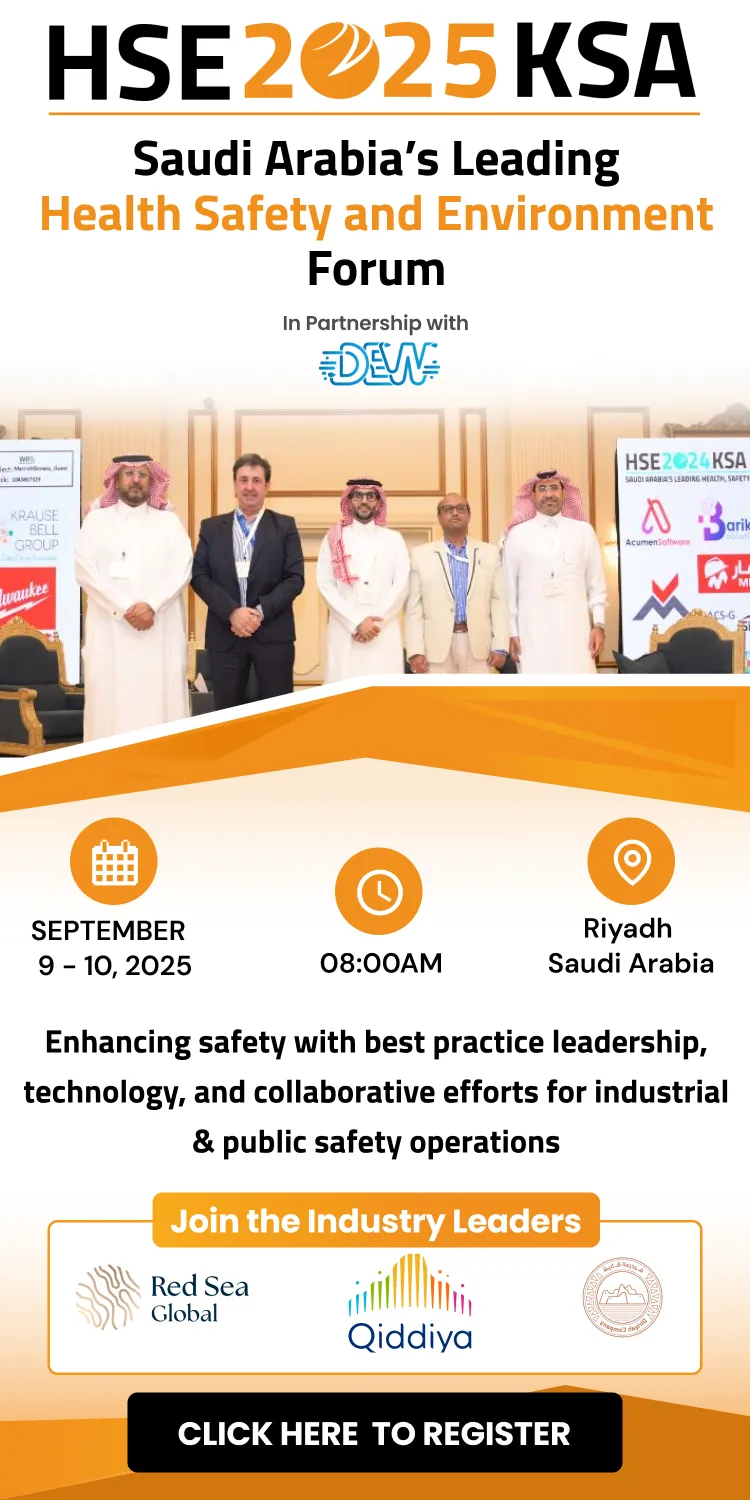Dr Rahaf Ajaj, Assistant Professor in EHS, College of Health Sciences, Abu Dhabi University, shares her thoughts on the role of academia/industry collaboration in advancing HSE, following her participation at the HSE UAE Forum
What role can collaboration between academia and industry play in driving solutions to HSE issues, and are there any examples you could highlight relating to the UAE or the wider region?
There is an apparent gap between academia and the industrial sector. Collaboration is needed to play a significant role in deriving relevant solutions through collaborative research projects and qualify students with up-dated practical knowledge and prepare them to fit the market's needs best. To achieve a better standard of life quality and welfare, it is crucial to establish a strong linkage between the theoretical knowledge (in academia) and the practical (in the market), and train students to reflect on the learning outcomes of health and safety in real life. Collaborations between universities and industries have made significant progress over the past years. Reasons include the advanced technological changes that have presented different hazards in the workplace, and growing interest in ethics and corporate responsibility.
Conducting impactful research projects in collaboration with industry, involving active student participation and solving real challenges in the industry are critical elements for bridging existing gaps. We need to discuss topics and challenges of shared interest and collaborate to find a better way to merge academia and industry to achieve the best results and innovate feasible and sustainable solutions.
Universities need to see results from their research put into practice. At the end of the day, it is mutually beneficial to collaborate, and there are excellent examples of successful collaboration between universities and industry partners. For example, the college of health sciences at Abu Dhabi University recently signed many MOUs with multiple medical and industrial sectors. The outcomes of these agreements are motivating and have opened new opportunities for students, faculties, and industry partners.
How can collaboration between scientists and engineers support HSE and advance new technologies?
To achieve feasible solutions, collaboration is needed between experts from multiple disciplines, including science and engineering, as scientists can work more on the development of the technology and engineers can focus more on the application. Both knowledge and expertise are needed to integrate feasible and applicable innovative solutions.
What do you think are the paramount health, safety, and environmental issues of concern currently in the UAE, which would benefit from further research and development?
I believe that the response to the global COVID-19 pandemic is evidence of the substantial health and safety considerations which apply in the UAE. The country progressed meaningfully to manage HSE issues to ensure life continuity and adapt to the situation in the best way possible following restricted health precaution measures. Many research ideas can be explored through collaboration with industry to reduce hazards in the workplace and ensure occupational health and safety. In addition, there are various concerns related to HSE, related to oil and gas, carbon footprint, limited water resources, overfishing, waste generation, air pollution, land degradation, desertification, and invasive species, which are posing an environmental threat to the UAE and many countries at the global level.
I propose the idea of establishing a research-based HSE programme in the UAE, which can be a channel to link universities and industries. It can help to bridge the gap by identifying the concerns in HSE and finding solutions through good collaboration between researchers, engineers, technicians, technologists, and decision makers.
How did you find your experience of taking part in the HSE UAE Forum, and what role do you think such events play in promoting HSE best practice?
The HSE UAE Forum 2021 in Dubai was an excellent opportunity to meet HSE professionals face-to-face. As continued physical distancing prevents the spread of COVID-19, we should be prepared to re-enter such vital events and investigate the post-COVID-19 world. The experience was very successful. The panel discussions were beneficial in providing insight into addressing different types of challenges in the HSE, and there were many contributions, including speakers and exhibitors from local and international entities specialising in HSE.
I discussed engineering controls and how they can minimise incidents and increase productivity at the workplace. My contribution covered how to identify and mitigate exposure to occupational hazards at source; understanding the importance of implementing engineering control measures and technologies at the workplace and how these fit into the ‘Hierarchy of Controls’; and accessing case studies on how engineering controls are effective in mitigating work hazards to protect workers.





